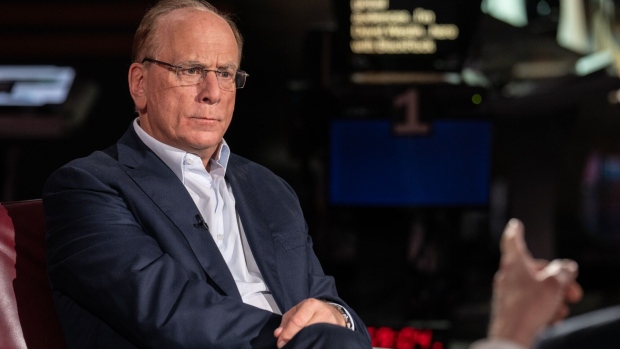Apr 4, 2024
BlackRock Faces Activist Proposal to Split CEO, Chairman Roles
, Bloomberg News

(Bloomberg) -- Bluebell Capital Partners is escalating its activist campaign against BlackRock Inc. with a shareholder proposal to bar Larry Fink from serving as both chief executive officer and chairman.
The activist investor is seeking an overhaul of the board and calling for an independent chair to increase oversight, BlackRock said Thursday in its annual proxy filing.
For about three years, London-based Bluebell has been targeting BlackRock for taking contradictory and inconsistent approaches to ESG investing that expose the firm to increasing risks of so-called greenwashing.
“There is an inherent conflict of interest for a CEO to act as her/his own oversight as chair,” Bluebell said in its statement supporting the proposal. “The lack of independent oversight within BlackRock’s board can be evidenced by the numerous contradictions and inconsistencies between BlackRock’s ESG strategy and its implementation.”
The board said in response that the proposal isn’t in shareholders’ best interests.
Having Fink, 71, in both roles “is the most appropriate and effective leadership structure for the board and the company,” according to the filing. He “brings over 30 years of strategic leadership experience and an unparalleled knowledge of BlackRock’s business, operations and risks.”
Read More: Bluebell Urges BlackRock to Oust Fink as Chief Over ESG
Bluebell, founded by Giuseppe Bivona and Marco Taricco, launched other campaigns in recent years against companies including yogurt maker Danone SA and Toronto-based movie-theater chain Cineplex Inc.
The activist firm also has pushed for changes at drugmaker GSK Plc and chemical producer Bayer AG. Bluebell’s previous targets have often attracted attention from other investors including Elliott Investment Management and Artisan Partners.
Fink co-founded BlackRock in 1988 and helped take it public in 1999. Since then, the shares have gained an average of 20% annually, compared with 7.8% for the S&P 500.
BlackRock also said in the filing that Fink received about $26.9 million of compensation for last year, a decline of 18% from 2022.
©2024 Bloomberg L.P.


